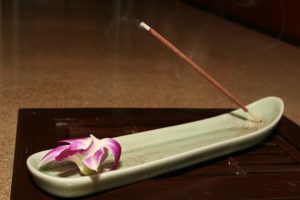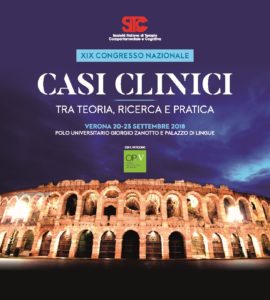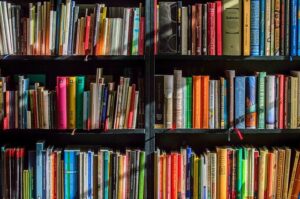
In questa pagina è presente l’elenco dei libri, dei manuali e degli articoli scientifici presenti nella bibliografia internazionale che hanno come oggetto la dipendenza affettiva (love addiction), le dipendenze, le molestie, le problematiche nelle relazioni sentimentali e i quadri di personalità maggiormente implicati nei processi disfunzionali generatori di sofferenza.
Libri e manuali
- Attili Grazia, “Il cervello in amore“. il Mulino
- Annalisa Balestrieri, “Dipendenze affettive, idoli e modelli di riferimento“. Independently 2022. Recensione
- Guerreschi C., “La dipendenza affettiva”. Franco Angeli.
- Hart Josephine, “Il danno”. Universale Economica Feltrinelli
- Moscovici Claudia, “Relazioni Pericolose: Affascinanti, carismatici e seduttivi.
- Pericolosi. Come riconoscerli e fuggire”. Sonda
- Norwood Robin, “Donne che amano troppo”. Universale Economica Feltrinelli
- Rosenberg, K. P., Curtis Feder L., “Dipendenze comportamentali“. Edra
Articoli
- Ahmadi, V., Davoudi, I., Ghazaei, M., & Mardani, M. (2013). Prevalence of obsessive love and its association with attachment styles. Procedia-Social and Behavioral Sciences, 84, 696-700.
- Bution, D. C., & Wechsler, A. M. (2016). Dependência emocional: uma revisão sistemática da literatura. Estudos Interdisciplinares em Psicologia, 7(1), 77-101.
- Di Chiara, G., & Imperato, A. (1988). Drugs abused by humans preferentially increase synaptic dopamine concentrations in the mesolimbic system of freely moving rats. Proceedings of the National Academy of Sciences, 85(14), 5274-5278.
- Dunn, E. W., Wilson, T. D., & Gilbert, D. T. (2003). Location, location, location: The misprediction of satisfaction in housing lotteries. Personality and Social Psychology Bulletin, 29(11), 1421-1432.
- Earp, B. D., Wudarczyk, O. A., Foddy, B., & Savulescu, J. (2017). Addicted to love: What is love addiction and when should it be treated?. Philosophy, psychiatry, & psychology: PPP, 24(1), 77.
- Fisher, H. E., Brown, L. L., Aron, A., Strong, G., & Mashek, D. (2010). Reward, addiction, and emotion regulation systems associated with rejection in love. Journal of neurophysiology, 104(1), 51-60.
- Fisher, H. E., Xu, X., Aron, A., & Brown, L. L. (2016). Intense, passionate, romantic love: a natural addiction? How the fields that investigate romance and substance abuse can inform each other. Frontiers in psychology, 7, 687.
- Gilbert, D. T., Pinel, E. C., Wilson, T. D., Blumberg, S. J., & Wheatley, T. P. (1998). Immune neglect: a source of durability bias in affective forecasting. Journal of personality and social psychology, 75(3), 617.
- Maran, D. A. (2012). Il fenomeno stalking (pp. 1-210). UTET.
- Meloy, J. R., & Fisher, H. (2005). Some thoughts on the neurobiology of stalking. Journal of Forensic Science, 50(6), JFS2004508-9.
- Petruccelli, F., Diotaiuti, P., Verrastro, V., Petruccelli, I., Federico, R., Martinotti, G., … & Janiri, L. (2014). Affective dependence and aggression: an exploratory study. BioMed research international, 2014.
- Rosenberg, K. P., & Feder, L. C. (2014). An introduction to behavioral addictions. In Behavioral Addictions (pp. 1-17).
- Sabatinelli, D., Bradley, M. M., Lang, P. J., Costa, V. D., & Versace, F. (2017). Pleasure rather than salience activates human nucleus accumbens and medial prefrontal cortex. Journal of neurophysiology.
- Sophia, E. C., Tavares, H., Berti, M. P., Pereira, A. P., Lorena, A., Mello, C., … & Zilberman, M. L. (2009). Pathological love: impulsivity, personality, and romantic relationship. CNS spectrums, 14(5), 268-274.
- Thege, B. K., Horwood, L., Slater, L., Tan, M. C., Hodgins, D. C., & Wild, T. C. (2017). Relationship between interpersonal trauma exposure and addictive behaviors: a systematic review. BMC psychiatry, 17(1), 164.
- Wilson, T. D., Wheatley, T., Meyers, J. M., Gilbert, D. T., & Axsom, D. (2000). Focalism: A source of durability bias in affective forecasting. Journal of personality and social psychology, 78(5), 821.
Contattami
Normativa Cookie, Disclaimer, Privacy e Copyright
Home
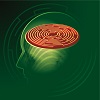

 Da migliaia di anni ormai l’uomo si interroga su cosa sia l’amore. La tematica è complicata da analizzare e comprendere in quanto coinvolge aspetti relazionali ed emotivi importanti.
Da migliaia di anni ormai l’uomo si interroga su cosa sia l’amore. La tematica è complicata da analizzare e comprendere in quanto coinvolge aspetti relazionali ed emotivi importanti.
 stato fonte di intensa sofferenza (oppure una serie di esperienze negative protratte nel tempo). Ma anche il rifiuto nella relazione sentimentale potrebbe essere un evento traumatico: accade ora, nel presente vicino.
stato fonte di intensa sofferenza (oppure una serie di esperienze negative protratte nel tempo). Ma anche il rifiuto nella relazione sentimentale potrebbe essere un evento traumatico: accade ora, nel presente vicino. ecco che i ricordi sono rivissuti, non narrati in forma esplicita; l’eterno ripetersi del vissuto traumatico con lo scopo di risolverlo, scopo che fallisce ad ogni tentativo.
ecco che i ricordi sono rivissuti, non narrati in forma esplicita; l’eterno ripetersi del vissuto traumatico con lo scopo di risolverlo, scopo che fallisce ad ogni tentativo.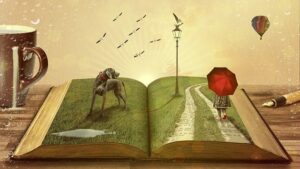


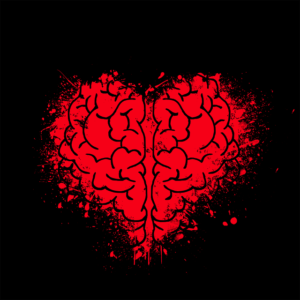


 A tal riguardo, il WHO (World Health Organisation) stima che ci siano 185 milioni di utilizzatori di sostanze psicoattive illecite (2015).
A tal riguardo, il WHO (World Health Organisation) stima che ci siano 185 milioni di utilizzatori di sostanze psicoattive illecite (2015).

